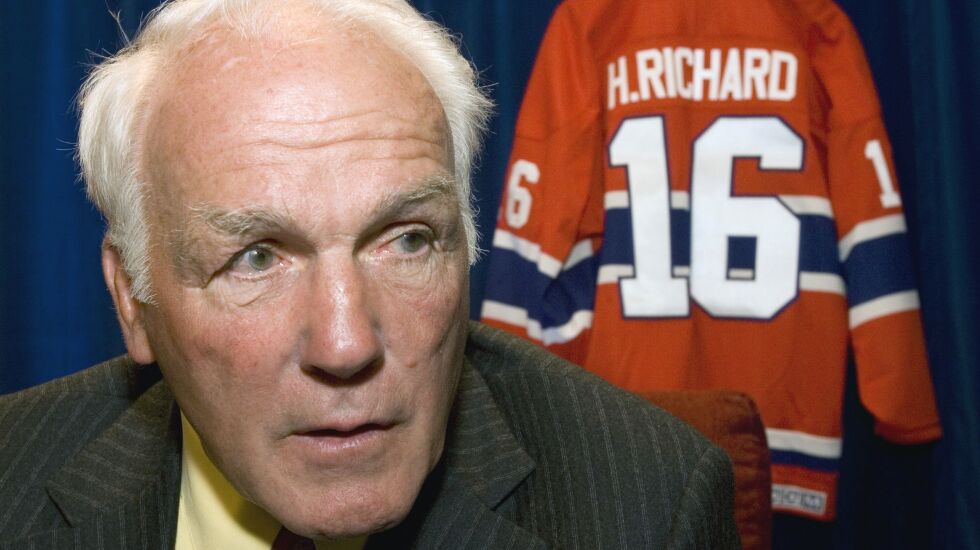
Henri Richard’s family says the late Hockey Hall of Famer has been diagnosed with chronic traumatic encephalopathy, the degenerative brain disease linked to concussions.
“I hope my father’s brain donation and diagnosis will lead to more prevention efforts, research, and eventually a CTE treatment,” Denis Richard, Henri’s son, said on Wednesday, a day after the clinching game of the Stanley Cup Final. “I want people to understand this is a disease that impacts athletes far beyond football.”
Richard, who died in 2020 at the age of 84, was diagnosed with CTE by Dr. Stephen Saikali at Université Laval in Québec City. The disease, which can only be diagnosed posthumously, can cause memory loss, depression and violent mood swings in athletes, combat veterans and others who sustain repeated head trauma.
The Concussion Legacy Foundation said 16 of 17 NHL players studied have now been diagnosed with CTE, including Steve Montador, Ralph Backstrom, Bob Probert, and Blackhawks Hall of Famer Stan Mikita.
“Henri Richard was not an enforcer and CTE still ravaged his brain,” said Tim Fleiszer, a former Canadian Football League player who is CLF Canada’s executive director. “It is far past time for all of us in the Canadian sports community to acknowledge the long-term effects of repetitive impacts on the brain.”
Nicknamed the “Pocket Rocket” after following his brother, fellow Hall of Famer Maurice “Rocket” Richard into the sport, Henri Richard won the Stanley Cup 11 times in a 20-year career — the most in NHL history. He scored 358 goals with 688 assists for the Montreal Canadiens from 1955-75.
Teammate and fellow Hall of Famer Ken Dryden said Richard “fits none of the easy stereotypes” from an era when players didn’t wear helmets and fighting was common.
“Like Stan Mikita and Ralph Backstrom, he was a great skater, and physical, but he had a playmaker’s mind, and played that way. But all those hits to the head,” Dryden said. “We have to understand, whatever the sport, a hit to the head is not a good thing.”







